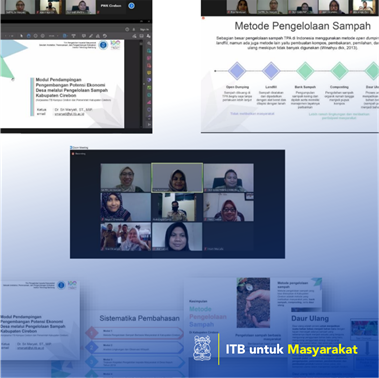

Sri Maryati
Most of the landfill waste waste management in Indonesia using the open dumping and landfill method, but there are also other methods of making compost, combustion, sorting, and recycling although not widely used (Winahyu et al, 2013). In the concept of linear economy waste is a residual product that is generally not worth anymore. At this time the concept of waste management in Indonesia is still linear economy or gathering. The concept of Linear Economy waste management has caused various impacts, especially the impact of water, land, and air pollution. In addition to the impact of pollution the linear economy paradigm is also high in high cost. The resulting garbage needs to be collected, transported and discarded. These processes involve expensive value infrastructure, also requires high operating costs. The more population, more and more waste produced, and the more costs needed to handle waste. Handling of garbage problems through composting and handling Leachi has been socialized through dedication activities in the ITB community in 2019 in the village of Kepuh. The enthusiasm of the community is quite large on the implementation of this activity. Based on the evaluation of 2019 activities there is an indication of the need for integration of waste management activities with the development of the village economy. The village community Kepuh hopes organic and non-organic waste can be processed so as to provide economic benefits for household life. The problem that has occurred in the village of Kepuh is the absence of facilitators who can accompany the community to remain actively managing household waste. In addition, the condition of society dominated by the elementary school-educated society made the challenge for the village to empower its citizens.
Application of writing
Overcome the increasing trash problem with increasing population The world, developing the circular economy paradigm. Circular economy is defined as a alternative handling waste that keep the use of resources as much as possible, take it benefits as much as possible from resources, and produce products and material at the end Use of these resources (World Economic Forum, 2019). Circular Economy replaces The concept of the end-of-life with the concept of restoration and renewable energy by reuse and returning to biosphere through material planning, products, systems, and business models. Integrated waste management can provide additional income for the community. For this reason, there is a formulation of waste management activities that can be integrated with the development of the community's economy and the preparation of business plans (business plan) to realize the activity.